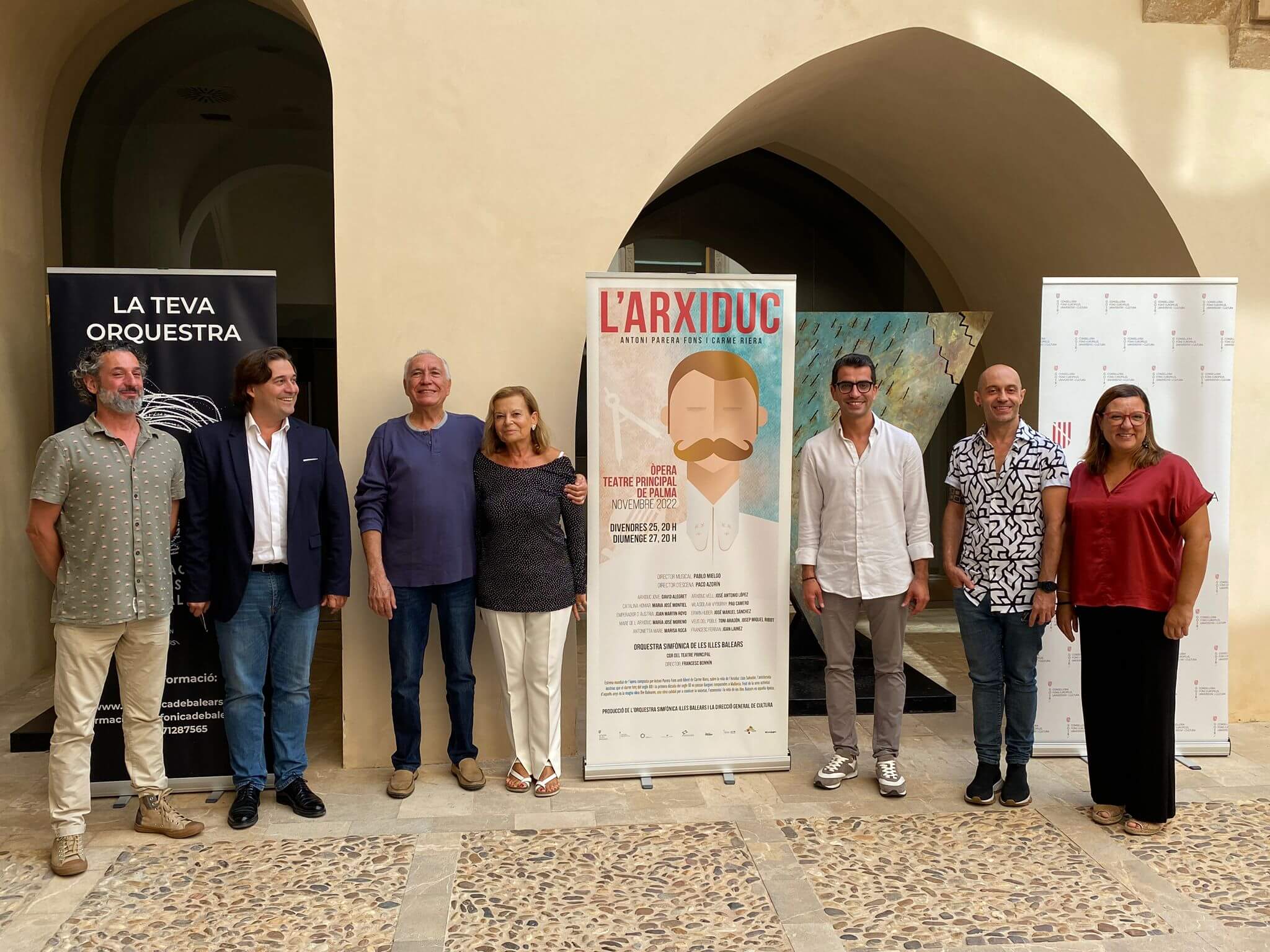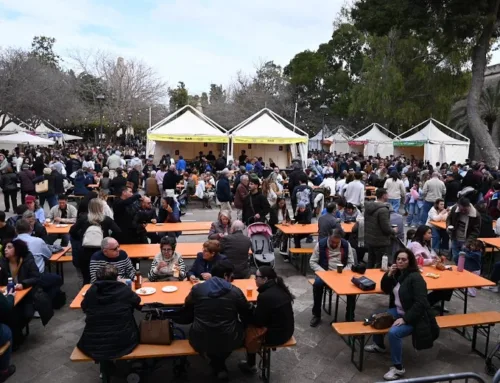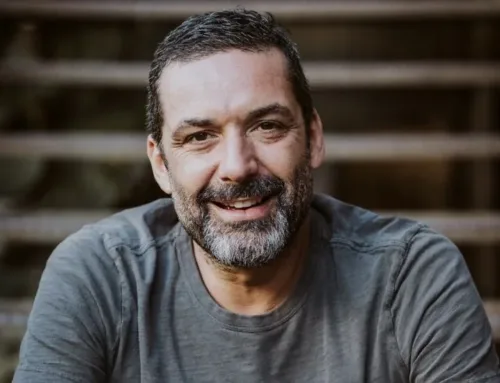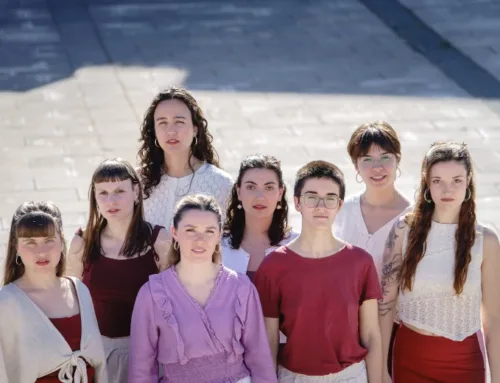The Govern has presented the opera L’arxiduc, the first of its own production, with Antoni Parera Fons and Carme Riera. The two national prize-winners have created the music and libretto for the work, which will be performed on the 25th and 27th of November at Palma’s Teatre Principal at 8:00 pm. The musical direction is by Pablo Mielgo and stage direction by Paco Azorín.
The opera narrates the life of a historical figure: Archduke Ludwig Salvator, the Austrian aristocrat who lived in Mallorca in the last third of the 19th century and the first decade of the 20th century. L’arxiduc, with the Symphony Orchestra in the pit, features a cast that includes tenor David Alegret (young Archduke); baritone José Antonio López (adult Archduke); mezzo-soprano María José Montiel (Catalina Homar); baritone Pau Camero (Wlasidlaw Vyborny); baritone Joan Martin Royo (Emperor of Austria) and soprano María José Moreno (mother of the Archduke). All this, with stage direction by Paco Azorín and musical direction by Pablo Mielgo.
The artistic and technical team also includes Balearic artists such as soprano Marisa Roca (Antonieta madre); tenors José Manuel Sánchez (Erwin Huber), Joan Lainez (Francesc Ferran) Antoni Aragón (voices of the people); baritone Josep Miquel Ribot (voices of the people) and the Choir of the Teatre Principal de Palma.

“The light and dark of the archduke”.
Antoni Parera Fons explained that “musically, I have strictly followed the libretto by my friend Carme Riera, in which the lights and darks of the archduke are presented. I am very happy to have composed an opera about such an attractive and cultured character who was so important in Mallorcan society”.
On the other hand, Carme Riera was very happy to work with her “great friend” Parera Fons, “one of the most important composers of monumental opera”. In the libretto, Riera wanted to capture the life and social relations of the archduke on his arrival in Mallorca. “That is why I have taken Die Balearen as a reference point, a masterpiece for learning about the society, economy and life of the Balearic Islands at that time, and which today continues to be a point of reference for scholars and historians”.







Leave A Comment